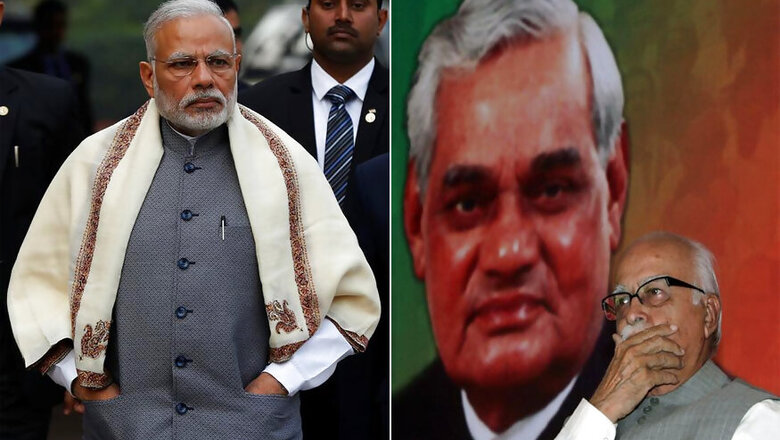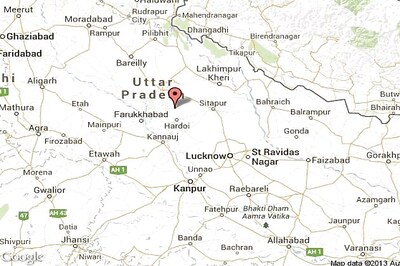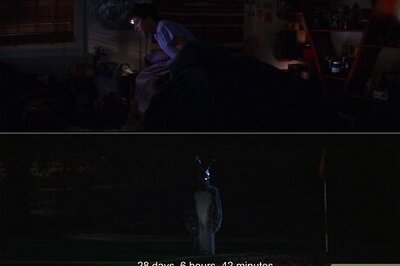
views
New Delhi: In his first speech in Parliament after the historic May 2014 verdict, Prime Minister Narendra Modi said: “I am hoisted by senior leaders of my party on their shoulders. Whatever we have achieved today is because of sacrifices made by past generations.”
In the same speech Modi had said, “I don’t know what pessimism is… I am an optimist by nature. It’s in my DNA.”
After winning four of the five states that went to polls recently, BJP now governs, either with an ally or by itself, 17 states and Union Territories -- well over half of India. Being in the Centre and in comfortable majority in most states, the party holds remarkable influence over policy and finances.
This influence is only likely to increase in the near future as BJP prepares to wrest states such as Karnataka and Himachal Pradesh from the Opposition.
The post-2014 BJP is very different from the one that had just two seats in Lok Sabha in 1984. According to Shanta Kumar, a founding member of the party, a former central minister and former chief minister of Himachal Pradesh, the present leadership of the party has an almost compulsive determination to win.
Kumar adds that the new generation of BJP leaders have brought with them an attitude that he and his colleagues had never imagined in their time. “We were always in the mindset of an opposition. We could never think of coming to power on our own. This is perhaps why there is a huge difference between the way Atal Behari Vajpayee spoke and the commanding manner in which Modi speaks. Atalji had to balance the whims of his coalition partners. Woh sochte, ki koi naraaz na ho jaye… Modiji doesn’t have that baggage,” he said.
“Atal Behari Vajpayee’s mantra was satya (truth) not satta (power). Unhone satya ke liye satta ko chod diya (He sacrificed power for truth). The importance given by the current BJP leadership to power is perhaps the thing that differentiates it from the old BJP.”
In many ways leaders like Bhupendra Yadav, party’s national general secretary, represent the change. A young MP from Rajasthan, who rose through the ranks of the RSS-linked students body ABVP, Yadav was given charge of Rajasthan and Jharkhand, both of which he delivered for the party. At 47, Yadav is already a member of several select committees of the Parliament.
“Compared to the earlier BJP, a huge social and geographic expansion has happened. We are governing a huge chunk of Indian population with a diverse social background, which in itself is a huge challenge… It's possibly the only challenge going forward. I know we are going through a purple patch right now, but it has been possible because of the strong foundations that our elders laid,” says Yadav.
“At the position we are in, right now, we are unassailable. There is no party to match us anywhere. And this is the worrying bit. For a strong democracy, we need a strong opposition. Otherwise there is nothing to counterbalance the ruling forces,” says Shanta Kumar.
Political observer and professor of political science in Lucknow University, Nadeem Hasnain, shares these concerns. “Because there is no strong opposition to the BJP right now, there is a danger that democracy will be turned into majoritarianism. In a space where only one party is growing, the space for dissent reduces,” he says.
Talking about the changes in BJP over the years, Hasnain says, “The younger lot of leaders is ambitious and full of aspirations. Which is why they are always in election mode. They want to win everywhere. But speaking of the party, the big change I see is RSS coming out of the closet. I think earlier BJP at least tried to keep a preteens that it was not consulting RSS on every issue.”
Hasnain also points out that some senior leaders in the BJP of yesteryears such as Yashwant Sinha or Jaswant Singh had no RSS background. “Today, most of the chief ministers and general secretaries are being appointed by the RSS. And these ministers, unlike previous years, flaunt their RSS connections. This, I think, is a big change.”
BJP has had a blow-hot, blow-cold relationship with the RSS, but an engaging relationship nevertheless, since it came to power in 2014. But undoubtedly several senior RSS members were loaned to the party to manage its elections and internal affairs. The party’s national general secretary Muralidhar Rao is one such example.
“The leadership you see in various states and party offices in BJP today is not an overnight development. We groomed these leaders over several years and introduced through them a demonstrative model of governance. Of course the Congress’ infamy, especially at the end of its second innings, helped us. But it was because of our acceptability in marginalised communities that we have been able to achieve all this. We broke the old myth that without active Muslim support nobody can win elections in India,” Rao says.




















Comments
0 comment